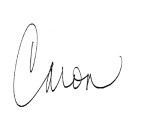
Tips on avoiding the risk of pipes freezing. Frozen pipes are one of the most common causes of property damage during frigid weather and can cause more than a few thousand dollars in water damage. The pipes that freeze most frequently are those in such unheated interior spaces as basements, attics, and garages. However, pipes that run through your cabinets or that are against an exterior wall can also be at risk.
*Remove, drain, and store hoses used outdoors. Close inside valves supplying outdoor hose bibs. Open the outside hose bibs to allow water to drain. Keep the outside valve open so that any water remaining in the pipe can expand without causing the pipe to break.
*Add insulation to attics, basements and crawl spaces. Insulation will maintain higher temperatures in these areas.
*Check around the home for other areas where water supply lines are located in unheated areas. Look in the garage, and under kitchen and bathroom cabinets. Both hot and cold water pipes in these areas should be insulated.
*Consider installing specific products made to insulate water pipes like a “pipe sleeve” covered with foam or fiberglass insulation sleeves, the thicker the better.
*Consider relocating exposed pipes to provide increased protection from freezing.
*Keep garage doors closed if there are water supply lines in the garage.
*If you are going on vaction for a long period of time, Open kitchen and bathroom cabinet doors to allow warmer air to circulate around the plumbing and set the temperature no lower than 55° F.
*When the weather is very cold outside, let the cold water drip from the faucet served by exposed pipes. Running water through the pipe – even at a trickle – helps prevent pipes from freezing.
*Keep the thermostat set to the same temperature both during the day and at night. By temporarily suspending the use of lower nighttime temperatures, you may incur a higher heating bill, but you can prevent a much more costly repair job if pipes freeze and burst.
If you turn on your faucets and nothing comes out, leave the faucets turned on and call a plumber.
*Do not use electrical appliances in areas of standing water. You could be electrocuted.
*Never try to thaw a pipe with a torch or other open flame because it could cause a fire hazard. Water damage is preferable to burning down your house!
*You may be able to thaw a frozen pipe using a hair dryer. Start by warming the pipe as close to the faucet as possible, working toward the coldest section of pipe.
*If your water pipes have already burst, turn off the water at the main shutoff valve in the house; leave the water faucets turned on. Make sure everyone in your family knows where the water shutoff valve is and how to open and close it.
If you are looking for more advice or need recommendations for a good plumber, call me (248)379-6651!


Caron Koteles Riha is a licensed Real Estate Broker with Real Estate One.
Email, Text or Call Caron at (248)379-6651 or Caron@CaronKoteles.com


Comments are closed.